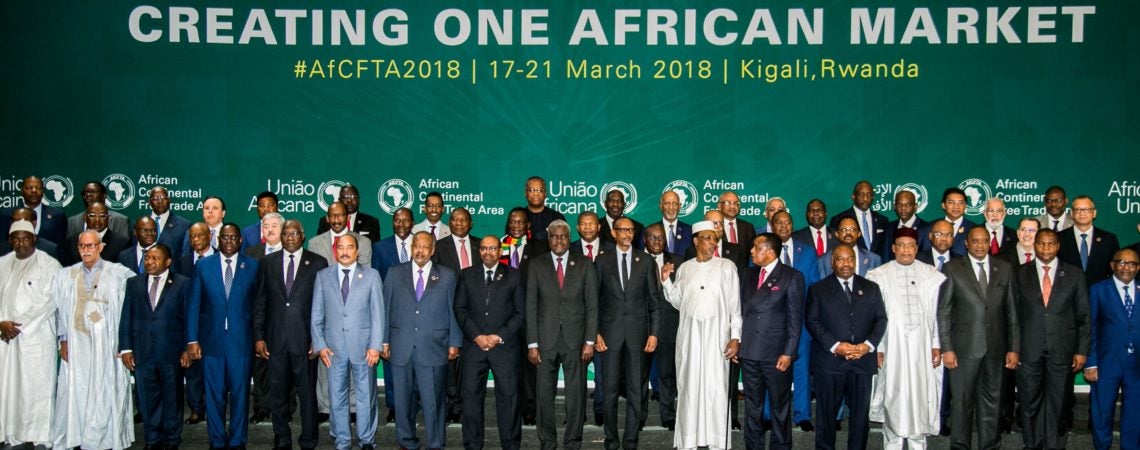International trade law is at a turning point, and the rules as we know them are being broken, rewritten, and reshaped at all levels. At the same time that institutions like the World Trade Organization (WTO) face significant change and a global pandemic challenges the rules of the market, Africa’s new mega-regional trade agreement, the African Continental Free Trade Area (AfCFTA), is emerging as a promising framework for redesigning international economic law. As this Article will argue, the AfCFTA presents a new normative approach to trade and development that is positioned to rewrite the rules in a more inclusive and equitable way and, over time, possibly affect global trade well beyond the African continent.
Historically, trade and development have been linked through the framework of Special and Differential Treatment (S&D), which has been a central feature of the WTO and is increasingly shaping regional trade agreements (RTAs) as well. Although the connection between trade and development is more important than ever before, traditional S&D is not positioned to deliver on broader priorities of social and economic development in the current international climate. Fortunately, as this Article will argue, Africa’s approach under the new AfCFTA sets the stage for a needed refresh of S&D. While the AfCFTA incorporates traditional aspects of S&D, it also includes elements of a forward-looking, rules-based approach to further economic and social development and advance the Sustainable Development Goals (SDGs). This new dimension of S&D holds great potential for promoting integration through trade, representing the needs of a diverse group of countries in the rulemaking process, and reshaping international economic law more broadly to generate positive development outcomes.
This Article begins with an assessment of the AfCFTA as an alternative model for trade and development law, evaluating the agreement in the historical and evolving context of S&D and examining its role in shaping a new normative approach to S&D. The AfCFTA, we argue, represents a shift from using S&D as a largely defensive trade approach to one that positions S&D as an affirmative tool for achieving sustainable development through the design and implementation of the rules of trade themselves, while still maintaining flexibility for countries that need it. This new approach may finally replace the old trade paradigm of the “haves and have nots” with a system in which trade rules can be designed to benefit all.
Although the AfCFTA is still at an early stage and will have to overcome formidable challenges, this Article provides an initial assessment of the AfCFTA’s proactive new model in the context of the substantive areas of law identified as next-stage (Phase II) negotiating priorities: intellectual property rights (IPR), investment, and competition law. The Article’s comparative assessment draws upon the laws of African nations, African and international RTAs, and other proposals for international legal reform.
Finally, the Article looks to the future, positing that the AfCFTA could be the best legal instrument available to break the stalemate in international rulemaking, design new trade law approaches to pressing issues like global health and food security, and close the loop between trade rules and development goals, including the seventeen SDGs. As the AfCFTA is rolled out and implemented, it could have a profound impact on trade and development law, reshaping the rules for Africa and perhaps the world as well.
To read the original piece, please click here
Kuhlmann_AgutuCLEAN_27September2020Katrin Kuhlmann is a Visiting Professor of Law at Georgetown University Law Center and the President and Founder of the New Markets Lab.
Akinyi Lisa Agutu is a recent Master of Laws (LL.M.) graduate in International Business and Economic Law at Georgetown University Law Center and a graduate of Strathmore University, Nairobi, Kenya.

